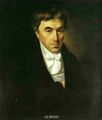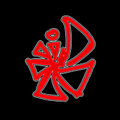Template:Selected anniversaries/December 22: Difference between revisions
No edit summary |
No edit summary |
||
| Line 43: | Line 43: | ||
||1869: Dmitri Egorov born ... mathematician and academic ... known for significant contributions to the areas of differential geometry and mathematical analysis. Pic. | ||1869: Dmitri Egorov born ... mathematician and academic ... known for significant contributions to the areas of differential geometry and mathematical analysis. Pic. | ||
||1884: St. Elmo Brady, African American chemist and educator. | ||1884: St. Elmo Brady, African American chemist and educator. Pic. | ||
||1884: John Chisum dies ... wealthy cattle baron in the American West in the mid-to-late 19th century. Pic. | ||1884: John Chisum dies ... wealthy cattle baron in the American West in the mid-to-late 19th century. Pic. | ||
Revision as of 04:25, 16 October 2019
1550: Philosopher and academic Cesare Cremonini born. His work will promote rationalism (against revelation) and Aristotelian materialism (against the dualist immortality of the soul) inside scholasticism.
1551: Explorer Cornelis de Houtman publishes "The Legend of Neptune Slaughter, a Tale of Monstrous Disaster from Beyond the Islands and the Oceans of the Furthest East."
1732: Inventor, engineer, and businessman Richard Arkwright born. Later in his life Arkwright will be known as the "father of the modern industrial factory system."
1765: Mathematician Johann Friedrich Pfaff born. He will work on partial differential equations of the first order Pfaffian systems, as they are now called, which will become part of the theory of differential forms.
1858: Composer Giacomo Puccini born. He will be called "the greatest composer of Italian opera after Verdi".
1887: Mathematician and theorist Srinivasa Ramanujan born. He will make substantial contributions to mathematical analysis, number theory, infinite series, and continued fractions, including solutions to mathematical problems considered to be unsolvable.
1894: The Dreyfus affair begins in France, when Alfred Dreyfus is wrongly convicted of treason.
1920: Lecture by monster ends in riot.
2016: Chromatographic analysis of Red Spiral 3 reveals "at least four, possibly five" previously unknown shades of red.








